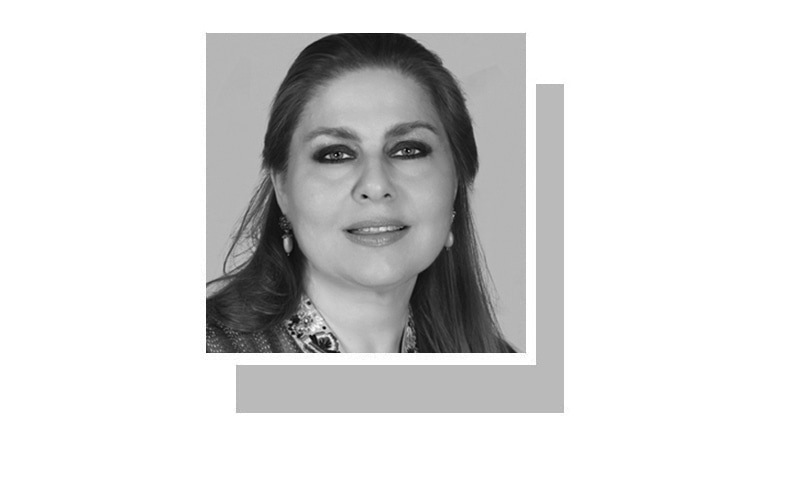By Rabiya Javeri Agha
Copyright dawn

THE ‘madwoman in the attic’ motif has been studied, romanticised, reimagined. Yet she has always been misunderstood. She was never mad. She was simply a woman whose existence became intolerable, not because she lost her mind, but because she refused to lose herself.
In Pakistan today, that same refusal is enough to erase adult women from their own lives. Teachers. Lawyers. Executives. Mothers. Daughters. All over the age of consent. All locked away in psychiatric and rehabilitation facilities against their will. They are not confined because they are dangerous to themselves or others. They are confined because they said no: no to marriage, no to silence, no to families who demand obedience above all else.
In many ‘rehab homes’ across Pakistan, there is no psychiatric protocol, no independent evaluation, no court order. A family member signs a form, pays a fee and the woman simply disappears. Once insi–de, the clinic becomes a carceral space. Phones are seized. Visitors barred. Came-ras trail their every move. Psychotropic drugs are dispensed without explanation. Refusal is punished with sedation. Protest is reclassified as pathology. Anger is not recognised as resistance but proof of illness. Staff call it treatment. Families call it discipline. In truth, it is punishment dressed as psychology.
The medical files of these women rarely contain a genuine diagnosis. Instead, they are filled with ‘evidence’ of disobedience. At admission, dubious lab reports brand them as users of ice or meth, yet no drug treatment follows. The only ‘therapy’ is co—erced apology letters and forced compliance.
Women are taught to doubt their own memories. They are coached to smile for videos sent home, to stage obedience as evidence of ‘recovery’. There is no diagnosis, only correction.
The National Commission for Human Rights has received numerous complaints of forced detention in rehab clinics, where women were locked away for disobedience, refusal to marry, or simply for not vacating family property. Four of these women were found illegally detained in one clinic outside Islamabad from where they were rescued. The facility, registered with the Islamabad Healthcare Regula-tory Authority (IHRA), operates in open violation of its mandate. Standards and SOPs are ignored with impunity, while the regulator looks the other way. Misogyny runs through its practices. Profiteering is packaged as treatment. Abuse is routine.
It is punishment dressed as psychology.
In one case, we received a desperate call about a woman who had been confined for nine days in one clinic. The woman was a 35-year-old executive with an MPhil degree. She was sane, articulate — and terrified — when we freed her. Her only ‘offence’ was refusing to marry the man her parents had chosen. A local psychologist had ‘diagnosed’ her defiance as ‘depression’, giving medical cover to parental coercion and captivity.
That mental health facilities can serve as accomplices in the abduction of healthy adult women exposes the rot at the heart of Pakistan’s mental health and so-called rehabilitation system. On paper, there are laws, SOPs and guidelines to prevent inv-oluntary commitment, regulate private clinics and ensure review and release. In practice, they are ignored. Oversight is absent. Accountability is non-existent.
These concerns have been raised with the IHRA and a commission hearing has been held. Survivors have testified before officials about the abuse endured. IHRA has pledged to act, but a reply is still awaited.
Our Constitution guarantees right to life, dignity and eq–uality before the law. The right to health — including mental health — flows from these guarantees. Yet Pa–kistan lacks a comprehensive mental health plan. Mental health laws remain unimplem-ented. Clinics run without oversight, while practitioners, including psychologists and self-styled ‘life coaches’, misrepresent qualifications and prescribe treatments without consequences.
This vacuum of enforcement allows clinics to function as tools of patriarchal control. It infantilises adult women, stripping them of autonomy under the guise of care. It converts judgement and misogyny into prescription and protocol. This is not a mental health crisis. It is a political one — because what is under attack is not illness, but women’s right to say no.
An inquiry report will follow. But the urgency cannot wait for paperwork. Journalists must investigate. Citizens must demand answers. And government must confront this institutional subjugation in which clinics, doctors, families conspire to strip women of their freedom.
The madwoman in the attic was never mad. She was unwilling to live a lie. So too are the women we fight to rescue today. For their clarity, they are drugged. For refusal, they are silenced. For choosing themselves, they are erased.
The writer is the chairperson of the National Commission for Human Rights.
Published in Dawn, September 19th, 2025



